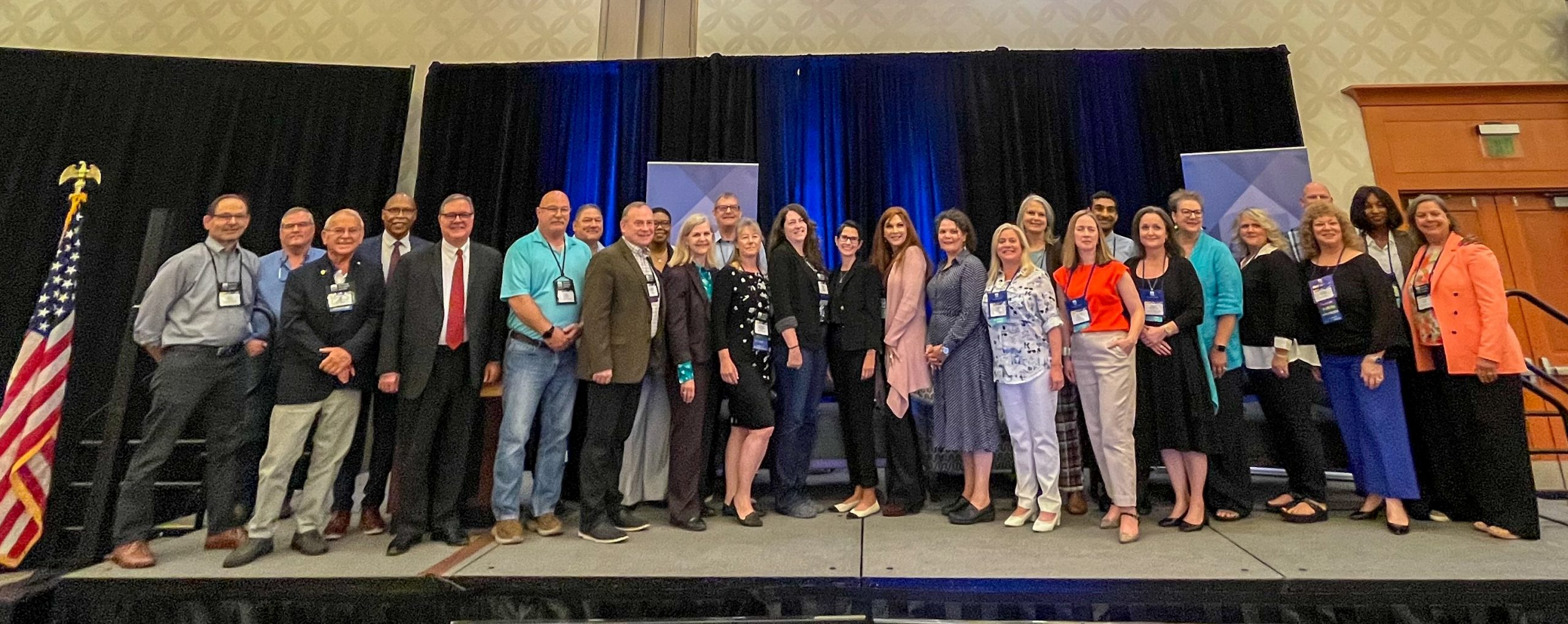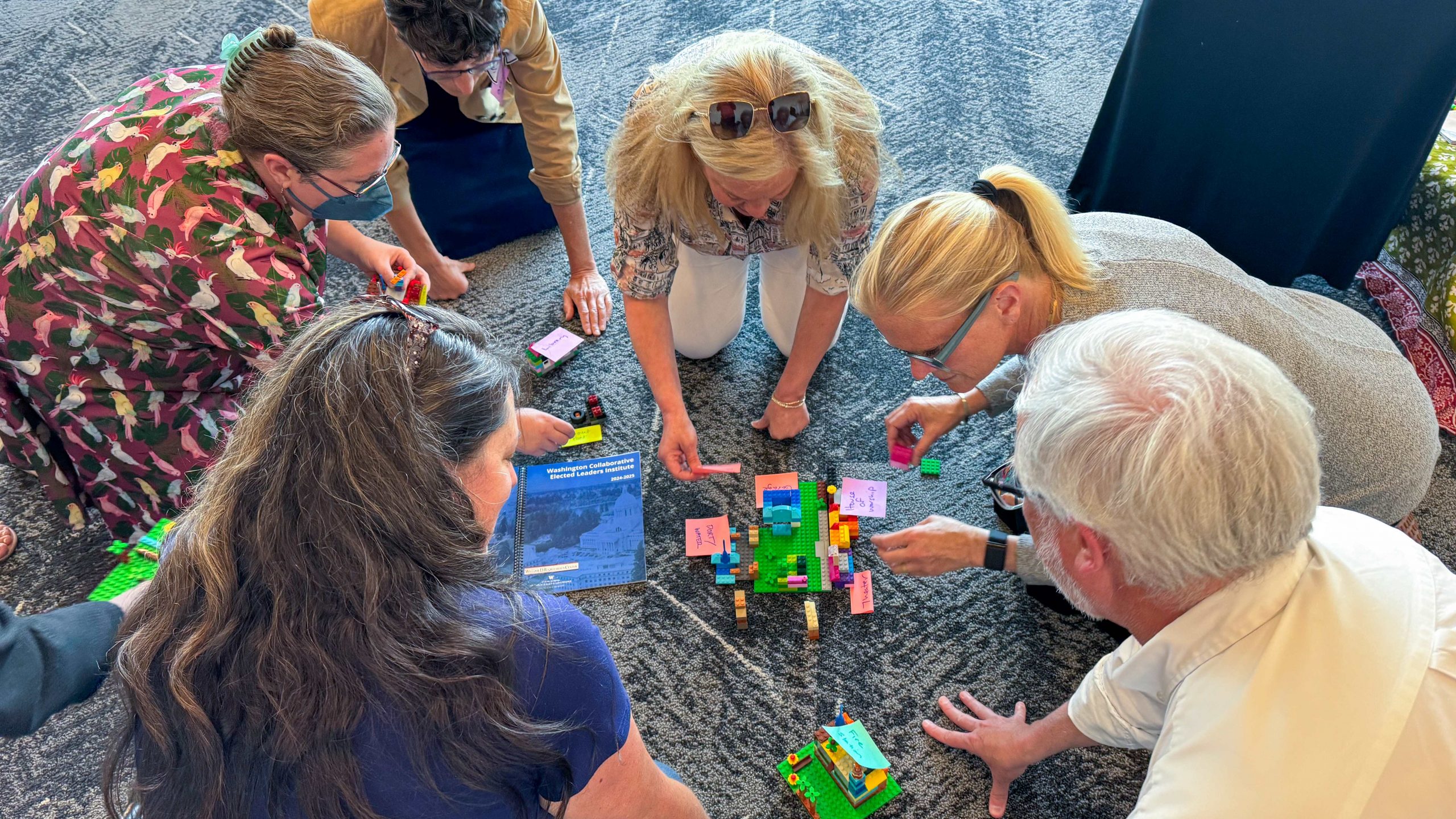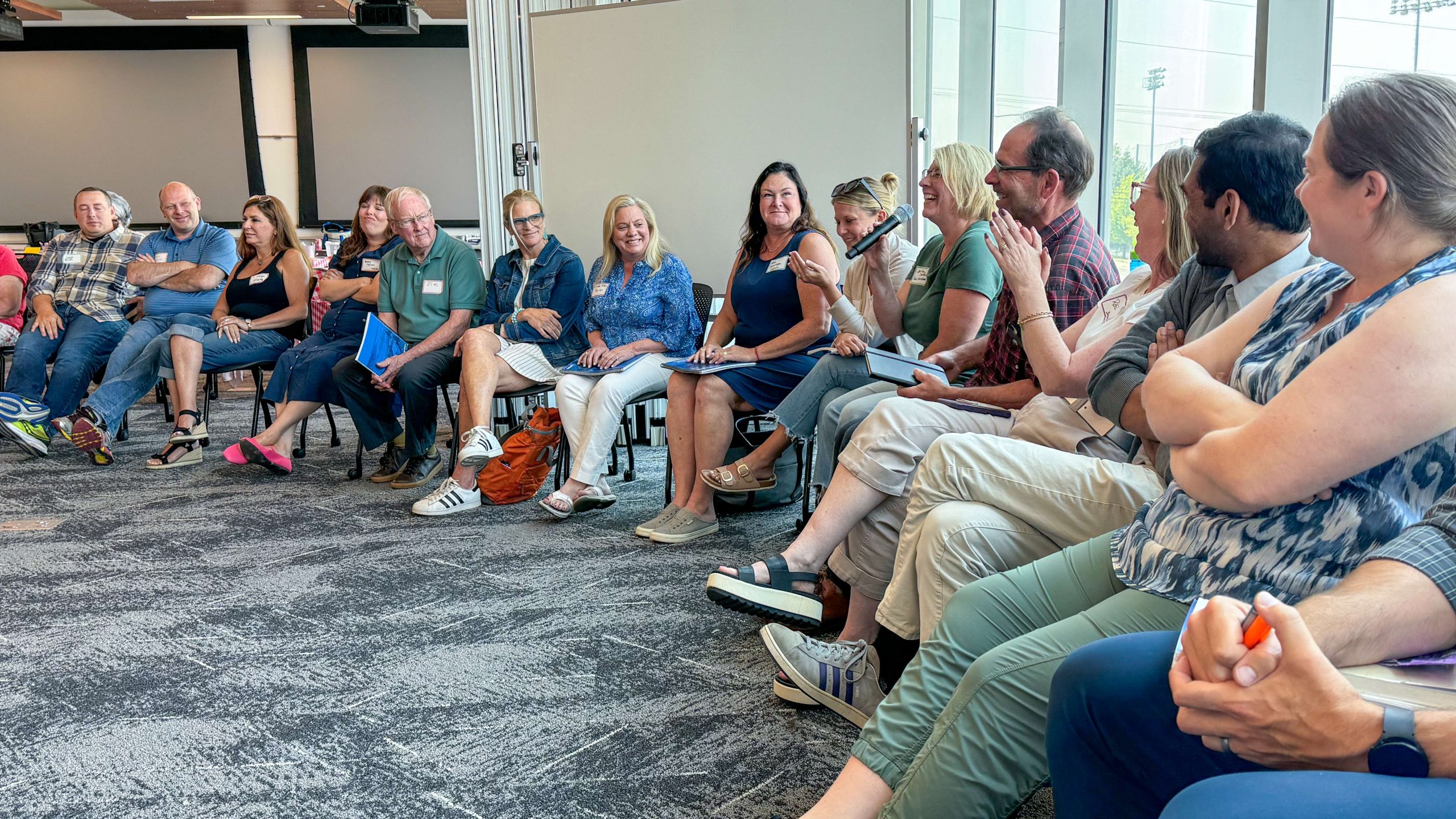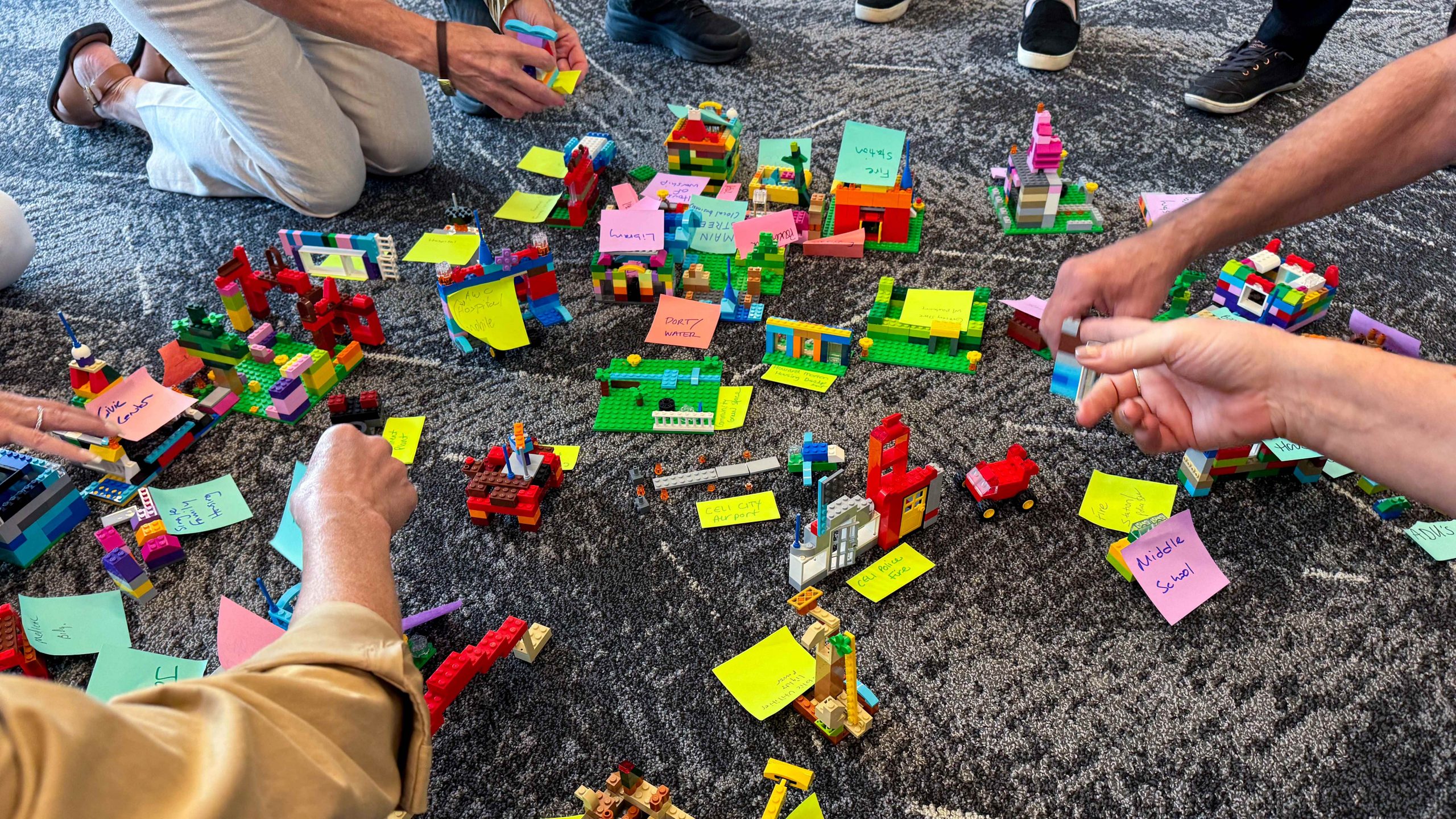It’s no secret that trust in governance is faltering. A recent Gallup poll found that only 39% of Americans trust the federal government. And though trust is higher in state and local governments (57% and 66%, respectively), we know there is an opportunity to plant seeds at the local level to improve civic health.
To respond to this moment, the Evans School of Public Policy & Governance and the William D. Ruckelshaus Center (WSU)—in collaboration with the Association of Washington Cities—are partnering to launch the Washington Collaborative Elected Leaders Institute (WA-CELI), a new program that aims to bolster the credibility of elected officials with the public they serve.
The Project for Civic Health, initiated by Lt. Governor Denny Heck, highlighted the need for unique support for elected officials to work together across political divides. This inspired the creation of WA-CELI to build the skills and courage needed for collaborative problem-solving.
“We brought together 200 people and said ‘we know what the problem is. What could we do?’” said Jodi Sandfort, dean of the Evans School. “The elected officials said, ‘we need some help building skills to disagree without being disagreeable.’ To me, it’s pretty clear that what’s failing us right now is that people have learned that to get elected, you have to be extreme. They haven’t learned that when you govern, you have to compromise.”
As two of the premier public universities in the state, WSU and UW are uniquely positioned to help elected officials reach across political divides and work together. Drawing on the expertise from both schools, the program includes applied training and peer learning that focuses on building a network of public leaders with collaborative leadership skills. The goal is to reshape Washington’s political culture to create a more collaborative and community-focused environment.
“We’re going to use a lot of case studies. Say it’s a conflict about a local issue around public safety or a conflict about a local issue about environmental protection and just having practice of how to sit and look at the case and figure out what are the issues and simulate what it’s like to try to come up with a solution,” Dean Sandfort noted. “Part of it is building better relationships and having experiences that help them feel more confident in their ability to analyze a problem and think through how we’re going to create a solution that adds value rather than just a solution that might be politically palatable.”
This summer, the first cohort of leaders from a mix of city sizes, types, and government structures is participating in virtual and in-person events across Washington state. Costs of attendance are covered to ensure accessibility for all. To further highlight connection across division, venues for the in-person sessions were intentionally chosen to play with people’s perceptions of where WSU and UW have influence in the state. The first in-person session was held July 27 at the UW Spokane Center, and a future session will be held at WSU’s Everett campus, across the street from Everett Community College.
The goal of this program is for public leaders to come away with new skills to collaborate with people they don’t necessarily agree with. Graduates will join a network of public leaders, staying connected through events and additional training. This network aims to support a shift towards a more collaborative political culture in Washington. Participants will also present their work at the annual AWC conference to engage and inspire future cohorts.



